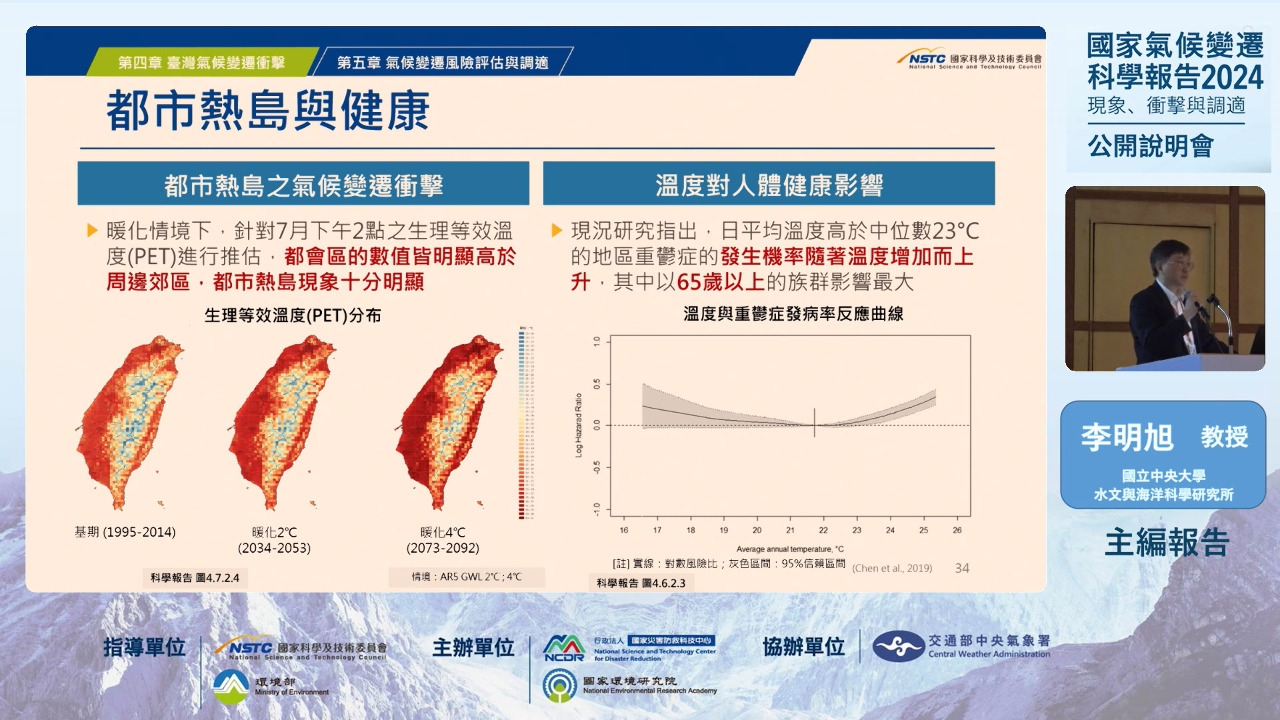
Summer in Taiwan could get longer. As per the Climate Change in Taiwan: Scientific Report 2024, released Wednesday, Taiwanese summers could last 7 months if greenhouse emissions can’t be effectively curbed. Such a change would not only affect agricultural production and the fishing industries but would also lead to rising sea levels affecting urban centers.
The report, authored by a researcher at the Academia Sinica Research Center for Environmental Changes, Hsu Huang-hsiung (許晃雄), and National Central University ocean sciences professor, Li Ming-hsu (李明旭), took a year and a half to compile and includes equal emphasis on climate risk mitigation and adaptation.
The report warns that if warming can’t be controlled, Taiwan summers may last up to seven months, with the number of days over 36 degrees Celsius increasing by 75 days.
Some of the potential effects include corn and rice yields trending down over 15% by the end of the century. For aquaculture and fishing: an increase of 1 degree Celsius drops squid yield by 15%, with only 2 degrees affecting clams as well. Other severely affected areas of Taiwan include the range in which natural forests can grow, wildlife habitat range, and sea-level rise. In the above stated 2 degree scenario, Yunlin County, Tainan, and Keelung would all face increased coastal flooding.
Taiwan's water resources face heightened vulnerability, marked by increasing intervals between spring rainfall, exacerbating dry spells, and escalating drought events. The report highlights the emergence of "extreme rainfall" as a new norm. It anticipates fewer but more intense typhoons, exacerbating challenges for dispersion, air quality, and urban heat islands during autumn and winter seasons.
With such a dire forecast, it is more important than ever to heed the warning of science and take the necessary steps to reduce climate impact.